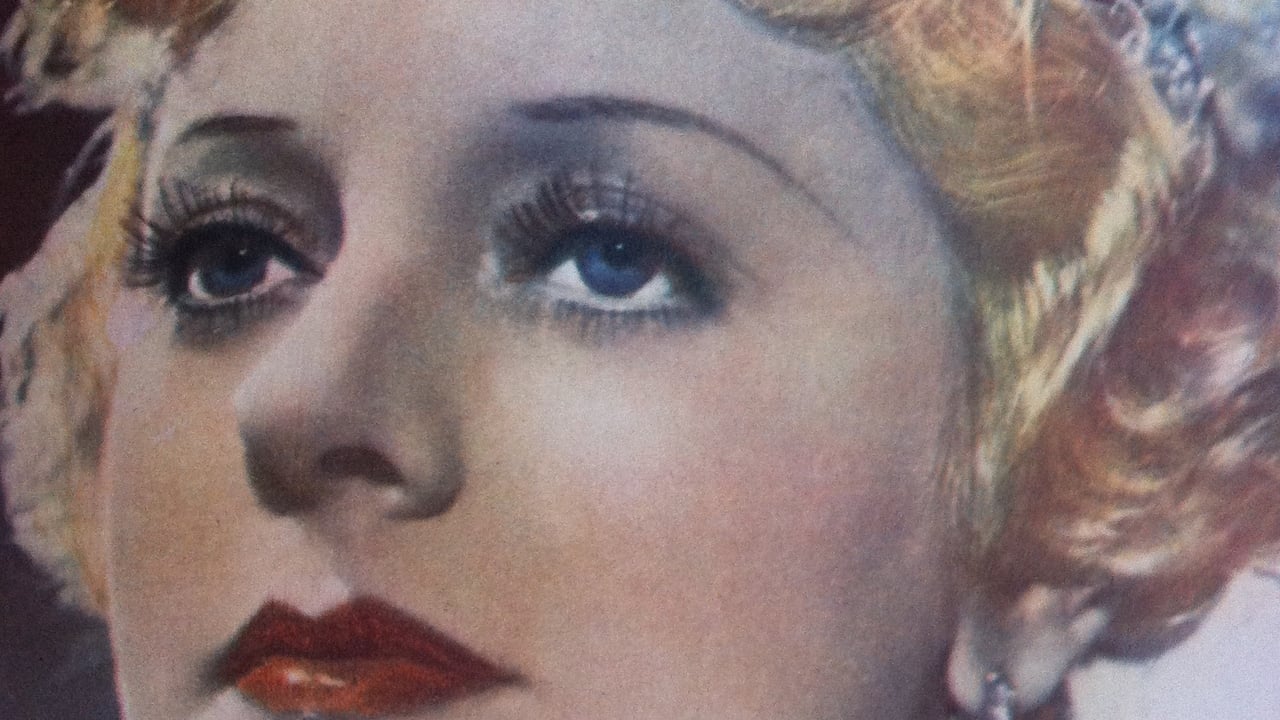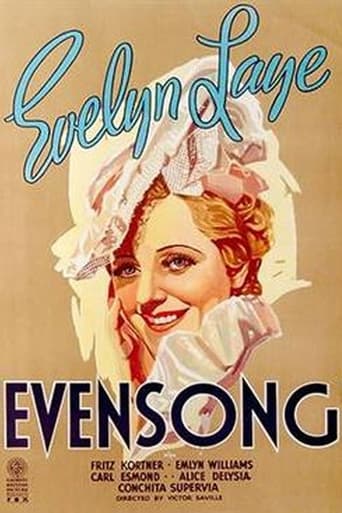

the leading man is my tpye
... View MoreThat was an excellent one.
... View MoreWatch something else. There are very few redeeming qualities to this film.
... View MoreStory: It's very simple but honestly that is fine.
... View MoreThis is one of those interesting misfires that happens when no one is looking because no one is quite sure what story they want to tell. Is it the story of a young Irish woman anxious to make good in the world of opera in fashionable Paris? A showcase for a opera diva in the pre-war years? One of a woman who sacrifices everything for her art? The story of how the Great War destroys everything for one woman? The sad tale of a washed-up artist unwilling to let go of past glories? You might cram all of them into a novel, and possibly into a three-act play that might please a contemporary audience, but it's too much to stick into a movie. It's too crammed with details, with great songs, with great performances, with great montages, with great thises and great thats for the audience to catch its breath.Evelyn Laye is Maggie O'Neill in Ireland. She runs away with Emlyn Williams to Paris, he to study music, she to study opera. Boom! She is ready for her audition and Williams is going to shoot her because she is going to leave him, but her singing is so wonderful, he writes her a note and leaves. Boom! She reinvents herself as Madame Irela! Montage of triumph, with showers of gold coins! Boom! Affair with Austrian Archduke, who insists on marrying her, but World War One is Declared! Boom! Victor Saville is in charge of this great mass of plot and music and acting and he does much better than you could imagine from what I've written up there, thanks, in no small part, to some superb montage work by Otto Ludwig. Also praiseworthy is the performance of Fritz Kortner as Miss Laye's impresario. In fact, there is nothing in this movie that is not, in itself, good. It's just that there's just too much of it.
... View MoreI really don't get the whole - it's not like the book - thing, as films really can't be like the book . . . but this is a bit different.Evensong is an extraordinary book by (Mr) Beverley Nichols about a famous opera singer as an old woman dealing with the agony of impending retirement. Published the year after her death, it is a subtle, fascinating and actually notorious portrait of Nellie Melba (the author was burned in effigy in Australia - I kid you not), who Nichols, as her private secretary and the ghost writer of her memoirs, had known intimately for the last five or so years of her life. It was a huge success and Nichols made a successful stage version which starred Edith Evans.This film has ABSOLUTELY NOTHING to do with it. Well, not absolutely . . . the last 15 minutes of the film have her as an older woman, but the context and conclusions have nothing do with Nichols, who naturally enough had nothing to do with the screenplay.Just don't spend the money to buy it, like I did, thinking it's an adaptation of the novel. This is a clichéd, melodramatic nonsense about a young woman becoming a star, made cheaply to cash in on the success of the novel. Interesting I suppose, that they did that sort of thing even in the 1930s.
... View MoreEvensong is based on the personality of the great Australian diva Nellie Melba (1861-1931).Just as Helen Mitchell of Melbourne, Australia, adopted the name "Melba" as a tribute to her hometown, so Evensong's Maggie O'Neal of Tralee, Ireland, is rechristened "Irela" when she begins her operatic career. Like her real-life counterpart, Irela is a classic prima donna, headstrong and determined to let nothing stand in the way of her success.Evensong is adroitly directed by Victor Savile, with fluid camera work and interesting dissolves carrying the action forward. The script is rather sketchy, reducing Irela's climb to international fame to a long montage of orchestras, opera house facades and gold coins piling up - without once ever showing (or letting us hear) Irela's voice! And the chronological story takes a sudden leap from 1917 to 1934 with no further explanation than a roll of years on the screen.Evelyn Laye gamely tackles the role of the tempestuous, egotistical Irela, and she sings quite charmingly, even if her voice is more suited to operetta than grand opera. (It seemed to me that she occasionally went slightly off key, but this may have been an effect of the poor soundtrack on the copy I saw).One wishes the film's script gave her more opportunity to show us why Irela was so obsessed with her career, since she ultimately seems to have nothing but bitterness toward the world.The film features Laye in a fully-staged "Libiamo" from La Traviata, and a solo concert recital. Laye/Irela's performance style on stage is musically good but quite stiff and emotionless,like the real-life Melba. Although this may have been another intentional nod to Melba, it does not make for exciting viewing. The camera also constantly cuts away from her when she is singing, which further compromises her ability to connect with the film audience.Evensong has a first-rate supporting cast: Emlyn Williams in an early film role as her first, doomed lover George; Fritz Kortner, a great star of the German stage and screen (he was Louise Brooks's co-star in Pandora's Box), now in exile from the Nazis, as her obsessive manager who loves only her voice.And best of all, legendary Catalan soprano Conchita Supervia as Baba L'Etoile, the singer who ultimately supplants Irela as the 'queen of song.' Supervia performs "Quando m'en vo" from La Boehme quite beautifully. Her Musetta has all of the vibrancy that Irela's performances lack.Later in the film, Supervia sings bits of several Spanish canciones and even breaks into a brief flamenco, but the camera keeps cutting back and forth from her triumphant backstage party to Laye's big final scenes. As noted by another reviewer, Supervia (who had married and Englishman) died in childbirth just two years after Evensong, so these few minutes on film are really a precious document of her performances.I saw Evensong on a poor-quality VHS copy borrowed from my local library. It was obviously transferred from a well-worn 16mm print. The film certainly deserves a better showcase - some enterprising DVD distributor should look into doing a good quality transfer from the best original elements.
... View MoreOld fashioned stolid yarn about sacrificing true love to chase the dream of singing on the world stage. Eventually the old diva knows in her heart she will be replaced by the young up and coming 'star'. Will she retire gracefully??. The new diva (Baba L'Etoile) sings beautifully and is a delight to listen too. Her real name is Conchita Supervia and she dies 4 years later in child birth.
... View More